Nancy AllbrittonFrank and Julie Jungers Dean of the College of Engineering and Professor of Bioengineering, University of Washington in Seattle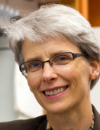 Nancy L. Allbritton is the Frank and Julie Jungers Dean of the College of Engineering and Professor of Bioengineering at the University of Washington in Seattle. |
Linda GriffithProfessor, Massachusetts Institute of Technology (MIT)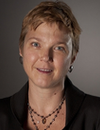 Linda G. Griffith, PhD, is the School of Engineering Teaching Innovation Professor of Biological and Mechanical Engineering and MacVicar Fellow at MIT, where she directs the Center for Gynepathology Research and the Human Physiome on a Chip Project supported by the DARPA/NIH-funded Microphysiological Systems Program. Dr. Griffith received a Bachelor's Degree from Georgia Tech and a PhD degree from the University of California at Berkeley, both in chemical engineering. Dr. Griffith’s research is in the field of regenerative medicine and tissue engineering. Her laboratory, in collaboration with J. Upton and C. Vacanti, was the first to combine a degradable scaffold with donor cells to create tissue-engineered cartilage in the shape of a human ear. The 3D Printing Process she co-invented for creation of complex scaffolds has been commercialized for manufacture of FDA-approved scaffolds for bone regeneration. She is also a pioneer in devising ways to control nano-scale stimulation of cells by molecular cues, and in creation of 3D tissue models for drug development. The 3D perfused “LiverChip” liver tissue culture technology has been commercialized for applications in drug development. A current focus is integration of tissue engineering with systems biology, with an emphasis on endometriosis and other women’s reproductive diseases. She is a member of the National Academy of Engineering and the recipient of a MacArthur Foundation Fellowship, the Popular Science Brilliant 10 Award, NSF Presidential Young Investigator Award, the MIT Class of 1960 Teaching Innovation Award, Radcliffe Fellow and several awards from professional societies. She has served as a member of the Advisory Councils for the National Institute for Dental and Craniofacial Research and the National Institute of Arthritis, Musculoskeletal and Skin Diseases at NIH. As chair of the Undergraduate Curriculum Committee for Biological Engineering at MIT, she led development of the new Biological Engineering SB degree program, which was approved in 2005 as MIT’s first new undergraduate major in 39 years. |
Thomas HartungProfessor and Doerenkamp-Zbinden Chair for Evidence-based Toxicology, Director of the Center for Alternatives to Animal Testing (CAAT), Johns Hopkins Bloomberg School of Public Health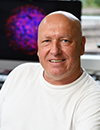 Thomas Hartung, MD PhD, is the Doerenkamp-Zbinden-Chair for Evidence-based Toxicology in the Department of Environmental Health and Engineering at Johns Hopkins Bloomberg School of Public Health, Baltimore, with a joint appointment at the Whiting School of Engineering. He also holds a joint appointment for Molecular Microbiology and Immunology at the Bloomberg School. He is adjunct affiliate professor at Georgetown University, Washington D.C.. In addition, he holds a joint appointment as Professor for Pharmacology and Toxicology at University of Konstanz, Germany; he also is Director of Centers for Alternatives to Animal Testing (CAAT, http://caat.jhsph.edu) of both universities. CAAT hosts the secretariat of the Evidence-based Toxicology Collaboration (http://www.ebtox.org), the Good Read-Across Practice Collaboration, the Good Cell Culture Practice Collaboration, the Green Toxicology Collaboration and the Industry Refinement Working Group. As PI, he headed the Human Toxome project funded as an NIH Transformative Research Grant. He is Chief Editor of Frontiers in Artificial Intelligence. He is Consulting Vice-President of AxoSim Inc., New Orleans. He is the former Head of the European Commission’s Center for the Validation of Alternative Methods (ECVAM), Ispra, Italy, and has authored more than 585 scientific publications. |
Kevin HealyJan Fandrianto and Selfia Halim Distinguished Professorship in Engineering, University of California, Berkeley Kevin E. Healy, Ph.D. is the Jan Fandrianto and Selfia Halim Distinguished Professor in Engineering at the University of California at Berkeley in the Departments of Bioengineering, and Materials Science and Engineering. He served as Chair of the Department of Bioengineering from 2011 to 2015. He is a thought leader and innovator working at the interface between stem cells and materials science to develop dynamic engineered systems to explore both fundamental biological phenomena and new applications in translational medicine. His group currently conducts research in the areas of: bioinspired stem cell microenvironments to control stem cell lineage specification and self-organization into microtissues or organoids; bioinspired systems for regenerative medicine; biological interfaces; and, microphysiological systems for drug development, gene editing, and environmental toxicity screening. Professor Healy is an elected Fellow of AIMBE, AAAS, FBSE, BMES, and recently received an Alexander von Humboldt Foundation Award. He has chaired the Gordon Research Conference on Biomaterials and Biocompatibility, and has been honored with the 2011 Clemson award for outstanding contributions to basic biomaterials science. He is a named inventor on numerous issued United States and international patents relating to biomaterials, therapeutics, stem cells, and medical devices, and has founded several companies to develop these systems for applications in biotechnology and regenerative medicine. |
Roger KammCecil and Ida Green Distinguished Professor of Biological and Mechanical Engineering, Massachusetts Institute of Technology (MIT)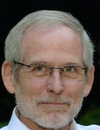 Kamm is currently the Cecil and Ida Green Distinguished Professor of Biological and Mechanical Engineering at MIT, where he has served on the faculty since 1978. Kamm has long been instrumental in developing research activities at the interface of biology and mechanics, formerly in cell and molecular mechanics, and now in engineered living systems. Current interests are in developing models of healthy and diseased organ function using microfluidic technologies, with a focus on vascularization. Kamm has fostered biomechanics as Chair of the US National Committee on Biomechanics (2006-2009) and of the World Council on Biomechanics (2006-2010). Kamm currently directs the NSF Science and Technology Center on Emergent Behaviors of Integrated Cellular Systems. He is the 2010 recipient of the ASME Lissner Medal (American Society of Mechanical Engineering) and the 2015 recipient of the Huiskes Medal (European Society of Biomechanics), both for lifetime achievements, and is the inaugural recipient of the ASME Nerem Medal for mentoring and education. He was elected to the National Academy of Medicine in 2010. Kamm is co-founder of two companies, Cardiovascular Technologies and AIM Biotech, a manufacturer of microfluidic systems for 3D culture. |
Michael ShulerSamuel B. Eckert Professor of Engineering, Cornell University, President Hesperos, Inc.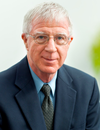 Michael L. Shuler is the Eckert Professor of Engineering, Emeritus in the Meing Department of Biomedical Engineering and in the Smith School of Chemical and Biomolecular Engineering at Cornell University, and was director of Cornell’s Nanobiotechnology Center. Shuler has degrees in chemical engineering (BS, Notre Dame, 1969 and Ph.D., Minnesota, 1973) and has been a faculty member at Cornell University since 1974. Shuler’s research includes development of “Body-on-a-Chip” for testing pharmaceuticals for toxicity and efficacy, creation of production systems for useful compounds, such as paclitaxel from plant cell cultures, and construction of whole cell models relating genome to physiology. Shuler is CEO and President of Hesperos, a company founded to implement the “Body-on-a-Chip” system. Shuler and F. Kangi have authored a popular textbook, “Bioprocess Engineering; Basic Concepts” now in its third edition. He has an honorary doctorate from the University of Notre Dame. Shuler has been elected to the National Academy of Engineering and the American Academy of Arts and Science and is a fellow of numerous professional societies. |
Josué SznitmanAssociate Professor, Technion – Israel Institute of Technology Josué Sznitman is a Swiss, French and Israeli national. Sznitman graduated from MIT with a BSc in Mechanical Engineering (2002), followed by a Dr. Sc. (2008) from the ETH Zurich. In 2008, Sznitman joined the University of Pennsylvania as a Postdoctoral Fellow and moved to Princeton University as a Lecturer and Research Associate, appointed by the Princeton Council of Science & Technology. He joined the Technion in October 2010 as a tenure-track Assistant Professor and was promoted to Associate Professor with tenure in 2016. Sznitman’s research underscores respiratory transport phenomena and pulmonary physiology, with a focus on preclinical models and drug delivery to the lungs including inhalation therapy. He is an associate editor for the Journal of Biomechanics, Clinical Biomechanics and Frontiers in Bioengineering & Biotechnology and also serves as a member of the Editorial Board of Biomicrofluidics and the European Journal of Pharmaceutical Sciences. Among his accolades, Sznitman was awarded the Young Investigator Award (2015) by the International Society of Aerosols in Medicine (ISAM) for a researcher under 40 and most recently the 2018 Emerging Scientist Award in Drug Delivery to the Lungs (The Aerosol Society, UK). His recent dissemination activities have included Webinars and the opportunity to deliver a TEDx Talk (2019) titled “From race cars to the lungs”. |
John WikswoGordon A. Cain University Professor, A.B. Learned Professor of Living State Physics; Founding Director, Vanderbilt Institute for Integrative Biosystems, Vanderbilt University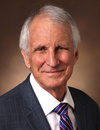 John Wikswo is the Gordon A. Cain University Professor at Vanderbilt University and is the founding Director of the Vanderbilt Institute for Integrative Biosystems Research and Education. Trained as a physicist, he received his B.A. degree from the University of Virginia, and his PhD. from Stanford University. He has been on the Vanderbilt faculty since 1977. His research has included superconducting magnetometry, the measurement and modeling of cardiac, neural and gastric electric and magnetic fields, and non-destructive testing of aging aircraft. His group’s current work on organ-on-chips focuses on the development of intelligent well plates that serve as perfusion controllers, microclinical analyzers, and microformulators; developing a blood-brain-barrier and a cardiac tissue construct on a chip; and integrating multiple organs to create a milli-homunculus from coupled organs on chips. As a tenured member of the Departments of Biomedical Engineering, Molecular Physiology & Biophysics, and Physics & Astronomy, he is guiding the development of microfabricated devices, optical instruments, and software for studying how living cells interact with each other and their environment and respond to drugs, chemical/biological agents, and other toxins, thereby providing insights into systems biology, physiology, medicine, and toxicology. He has over 250 publications, is a fellow of seven professional societies, and has received 39 patents. |




